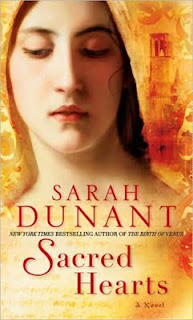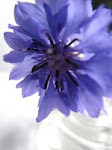This isn't my TBR stack - I found it on the web, but
I have read - and recommend - "Odd Thomas",
"The Time Traveler's Wife" and "Traveling Mercies".
I have been meaning to read something by Flannery O'Connor,
and I like Bret Lot so I will check into "A Song I Knew By Heart"
and I like Bret Lot so I will check into "A Song I Knew By Heart"
What's in your TBR (To Be Read) stack? Actually, I have two "stacks". One is a set of five books gathered nicely in between spaniel bookends on the little table by the couch. In it are books I plan to read soon - brand new hardcover books from my book-of-the-month clubs, plus a used book ordered for my September online book club discussion ("Troubles" by J. G. Farrell). The others are "Juliet" by Anne Fortier, highly touted by all my book-of-the-month clubs, "The Island" by Erin Hildebrand and "The Whisper" by Carla Neggers. However, I was miffed to learn that to get the most out of the Neggers book I need to go back and read her previous three books involving the same cast of characters.
My other "stack" is really a bookcase shelf I have given over to books I THINK I will be reading. The trouble is, a lot of these books have been sitting there a long time and I'm wondering if I should weed them out. It's not as if I haven't been adding to the shelf. That's the problem. The books that have been added latest have been the ones I have chosen to read first.
My TBR stack can be divided into several categories. Under the "started but couldn't finish" books are "Gentlemen and Players" by Joanne Harris (I love all her other books!), "West With The Night" by Beryl Markham, "The Sultan's Seal" by Jenny White, "When Madeline Was Young" by Jane Hamilton, "Wicked" by Gregory Maguire and "Leonardo's Swans" by Karen Essex. Having listed them, I realize that's quite a few, as I usually don't start a book and then not finish it. I think I will give each one another try and if I still can't read it, move it elsewhere.
Three of the books aren't really mine. "Pope Joan" by Donna Woolfolk Cross is actually my daughter's book. I love historical novels and this one looks kind of interesting. I gave "Tipperary" by Frank Delaney to my husband for Christmas one year and he never read it. And a very recent (and unread) gift to Dan is "The Thousand Autumns of Jacob De Zoet" by David Mitchell. Since they aren't mine, I don't feel guilty if I don't read them. However, Jacob De Zoet has been highly touted by my online book club members so I think I will pick it up soon.
Then there are the books that are quite lengthy but I'm pretty sure they will be good. I just feel as if I need a big chunk of time to devote to them. They are "Sacajawea" by Anna Lee Waldo, "A Rose For The Crown" by Ann Easter Smith and "My Sister, My Love" by Joyce Carol Oates.
I bought "The Lost German Slave Girl" at a used book store and THEN found out it is a true (and therefore dull?) account. I might or might not have already read "Cold Sassy Tree" by Olive Ann Burns, (bought at a thrift shop so little is lost if I have read it). "Cane River" by Lalita Tademy is left over from the good old days of Oprah's Book Club when I purchased and read (almost) every one. Since I have read Alison Weir and Philippa Gregory lately, I am saving "Earthly Joys" (Gregory) and "Innocent Traitor" (Weir) for a while.
Finally, there are the series books. I bought "Child of Prophecy" by Juliet Marillier and then discovered it is the third book in a trilogy ("Daughters of The Forest" is No. 1 and "Son of the Shadows" is No. 2). So now all three sit there mocking me. "Rebel Angels" by Libra Bray is a sequel to her "A Great and Terrible Beauty" but it's been a long time since I read that and fear I need to read it again. Ditto with "Isolde, Queen of the Western Isle", which is the first book in Rosalind Miles Tristan and Isolde trilogy, followed by "The Maid of the White Hands" and "The Lady of the Sea". Now these two languish unread.
I have read the first three books of Mary Stewart's wonderful Arthurian saga, but I hesitate to read the fourth and final book, "The Wicked Day" because I know that Arthur dies in it and the story must finally end.
I was definitely seduced by the gorgeous covers and location (the moors and glens of the Scottish Lowlands, 1788) of Liz Curtis Higgs' trilogy. I read the first, "Thorn In My Heart", and found it to have a heavily religious bent so although I bought them, I have not read "Fair Is The Rose" or "Whence Came A Prince".
Will I or will I not read these TBR books? Only the future will tell.
I was definitely seduced by the gorgeous covers and location (the moors and glens of the Scottish Lowlands, 1788) of Liz Curtis Higgs' trilogy. I read the first, "Thorn In My Heart", and found it to have a heavily religious bent so although I bought them, I have not read "Fair Is The Rose" or "Whence Came A Prince".
Will I or will I not read these TBR books? Only the future will tell.











